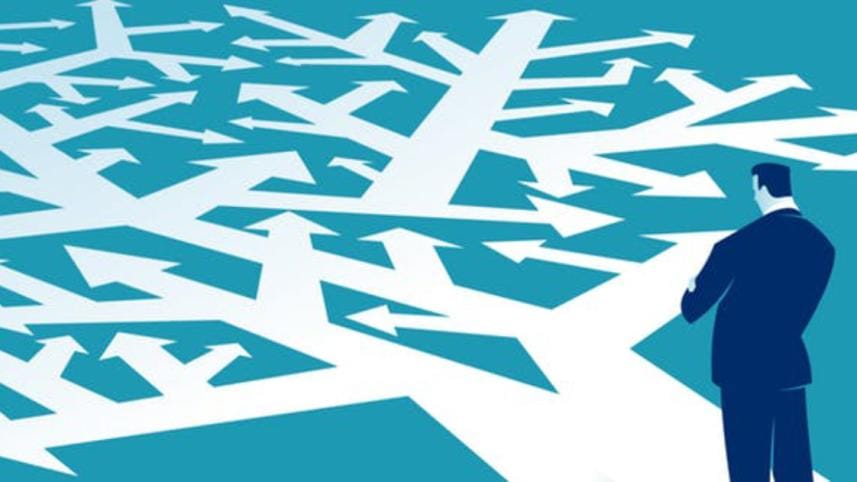The hidden dangers of behavioural economics

Have you ever wondered why stores tend to have big flashing signs with prices presented in fractions like 3.99 instead of just putting a 4? Well, if you did, then congratulations to you! Because, you are one step ahead in the realm of behavioural economics. To some, this is a comparatively new field of study, while others might not consider it as much novel. Nevertheless, behavioural economics started to attract the attention of academics and policy makers around the world after Daniel Kahneman and Richard Thaler received the Nobel Memorial Prize in Economics in 2002 and 2017, respectively, for their contributions in the field. Standard neo-classical models of economics consider that humans are rational and self-interested beings, which means that they are able to decide what is best for them given a set of alternatives. But behavioural economists have shown that human behaviour and decision-making process often deviate from the standard economic concept of "rationality".
So, coming back to our 3.99 price problem, it is simply an example of one of the many behavioural fallacies or cognitive biases that we face in our day-to-day life. It is nothing but a case of what is called an "anchoring effect". It occurs when someone relies too much on an initial piece of information that is offered to them and forgets to critically evaluate the complete scenario.
Now let's look around ourselves one more time. Can you think of someone who had taken up gym membership and, as time passed by, hardly ever visited the gym? Well, actually we all might have such a similar memory of our own time-inconsistent behaviour. Human beings are generally time-inconsistent most of the time and they put more weight on the present compared to any other time in the future. When we take a decision for the future, we tend to think that we are going to probably behave or feel the same way as we do now. But as time goes by, we keep discounting our future for instant gratification in the present.
Yet again, can you recall reaching out for the good in the shopping aisle with a free tag or being ecstatic to receive free gifts with your purchases? But are businesses out of their mind? Why are they giving away stuff for free every so often? This, again, can be explained with one of the key concepts of behavioural economics—that is, the prospect theory. It shows that people often make biased decisions because they prefer to avoid losses more than an equivalent gain. According to the theory, it is better to separate gains from aggregate losses. For example, businesses often use the technique of offering free goods with certain purchases because people usually project higher willingness to pay when the gains of two goods are presented separately. An alternative scenario takes place when we keep charging the credit card for our frequent shopping trips. We feel happy to use the credit card because it provides a method to aggregate losses. People encounter losses when they pay at the end of a month rather than on each transaction and thus tend to spend more.
So, how does behavioural economics work? First of all, it embraces the fact that human behaviour and decision-making process often deviate from the economic concept of rationality. However, behavioural economists have shown that these deviations are large, systematic and predictable enough to allow for the development of new descriptive theories of decision. Hence, fundamentally, this field of study helps us to better understand ourselves and also the people around us.
Nonetheless, behavioural economic insights can also be used in detrimental ways. Research shows that individuals often rely on intuition, stereotypes, degrees of belief, past experience and availability of some immediate information, etc. rather than evaluating the actual consequence of their action or decision. Moreover, subtle changes can influence people's action or decision to a great extent. Therefore, elites, powerful lobby groups, businesses and large corporations can use certain behavioural insights for personal gain.
Consequently, increased awareness regarding the behavioural insights can be a pivotal step for a country like Bangladesh. Given the fact that Bangladeshis still have to bear around 75 percent of medical expenses out of their own pocket, behavioural economics may remind us to make healthier choices and save more for the future. Secondly, individuals may also avoid the possible risks of manipulation and exploitation by individuals or groups who use "nudging" as an instrument. Some proponents of behavioural economics have already warned us that lie can also be one of the forms of influence. Therefore, a statement might be literally true and therefore not a lie, but nonetheless, deceptive or manipulative.
At this point, someone might say that we all know this and there is no need for behavioural economics. While it might be true that we might more or less know what is good for us, in reality, we still falter to improve our lifestyle or to make the right choices. So why do we keep failing over and over again? And how can we use behavioural insights beyond just profit-making? We need to conduct more evidence-based research in order to find the answers to such fundamental questions. In fact, the clock is ticking for us to begin the debate on the implications of behavioural insights for the design of appropriate public policies. Could there be an alternative path to take the country any further?
Rafiqua Ferdousi is Research Economist, South Asian Network on Economic Modeling (SANEM).



 For all latest news, follow The Daily Star's Google News channel.
For all latest news, follow The Daily Star's Google News channel.
Comments